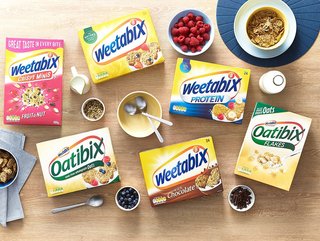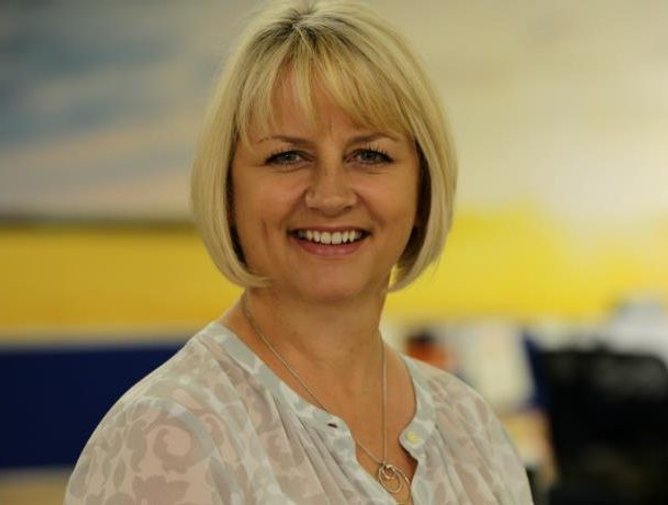Weetabix drives sustainability goals with package innovation

When late last year, the Weetabix Food Company hit its target of 100% recyclable packaging across all its brands, it proved quite an achievement.
Three years ahead of the target originally set, Weetabix is not only achieving its sustainability goals early but is now setting its sights on even more ambitious goals – to reduce the carbon footprint of its packaging.
This was revealed in the company’s just-released 2023 Sustainability Report, which covers the period October 2022 to September 2023.
The report reveals the progress made by the company over the past year with its Change For Even Better sustainability strategy focused on four pillars – sourcing, product, operational and social.
“I am pleased to say that our work developing Science Based Targets has continued and we expect to set these before the end of 2023,” says Sally Abbott, Managing Director at Weetabix Food Company UK & Ireland. “I am also delighted that we passed the important milestone of making 100% of our packaging recyclable this year.
This means that all of the Weetabix paper-based packaging components and On The Go drinks bottles can be widely recycled at home, while the plastic components can be recycled with soft plastics at most major supermarkets.
Among the most significant achievements the company has made is in changing the paper wrap that protects its Weetabix biscuits within the box. The wrap is lined with a thin plastic coating to help protect the product and comply with food contact safety standards.
“By January 2024, we will have reduced the coating thickness down from 0.87 grams to 0.35 grams, representing a 59% reduction in material used,” states the report, and this will “save more than 200 tonnes of plastic each year”, while also ensuring the wrap is fully acceptable in UK curbside recycling processes.
The same innovation has been translated to the company’s Ready Brek portion sachets to make them 100% recyclable too.
“By successfully introducing new recyclable films to our packaging over the past year, we have made sure there is no compromise on freshness, meaning that our consumers can be confident of the same Weetabix quality and taste,” says Mark Tyrrell, Packaging Development Manager, Joint Pillar Leader.

Next steps – reducing the carbon footprint of packaging
With such a milestone met, now the company is focused on reducing the carbon footprint of its packaging by 15% – and has made inroads by innovating with its plastic packaging.
In the report, Weetabix outlines how by increasing the recycled content of Weetabix On The Go bottles to 51%, they have reduced their carbon footprint by 8%. Also, by reducing the thickness of board used to make its cereal cartons, the company has achieved up to 20% footprint reduction across the range.
Weetabix has also reduced the weight of plastics in its drinks bottle by 15%, the inner cereal carton bags by 9% and the amount of plastic in its Alpen portion packs by 4%.
By changing configurations in this way since 2020, the company has reduced carbon emissions by 9.2% as a sales weighted average across all the packaging materials used, it says.
Further projects are now underway to add even more recycled content to its plastic packaging to make further reductions – and to reduce the plastic in the Weetabix wrap by 60% and additional reductions in plastic in the drinks bottle by 8%.
Weetabix sustainability strategy – highlights
2023 marks the fifth year since the company created its Change For Even Better sustainability strategy – designed to bring together initiatives and ambitions under a clear vision – supported by four key pillars of action – forcing, product, operational and social.
These pillars contribute to the company’s ultimate target of 20% reduction of Scope 1 and Scope 2 emissions by 2025, per tonne of product – and according to its latest report, the business is on track to achieve this target by 2025.
The business is working towards net zero carbon wheat – and today, 100% British wheat is used to make Weetabix Original – with 4 million acres of British countryside farmed sustainably to grow Weetabix wheat. Not only that, but 50 miles is the maximum distance from within which wheat used to make Weetabix Original is sourced.
In addition to packaging (product), other 2023 highlights from the company’s latest report include:
- 98% of ingredient suppliers have now signed up to its procurement standard – which outline ethical terms and conditions
- Over 3 million litres of water has been saved annually by capturing and reusing condensate in its manufacturing process
- Over 3 million breakfasts have been donated to FareShare and Magic Breakfast in the past year to ensure healthy breakfasts for those who need them
Another first this year, the company has now introduced a Wheat Traceability programme that now features on its Weetabix Original boxes to help consumers to understand the role played by the farmers in its Growers Group.
Read the full report here
- DP World: An ‘Unwavering Commitment’ to SustainabilitySupply Chain Sustainability
- Is the UK Finally Going to Have a Deposit Return Scheme?Sustainability
- Walmart and Tide Campaign: Why Cold-Water Laundry is BestSustainability
- Is Unilever’s ESG Rethink Good Business or Green Betrayal?Sustainability






